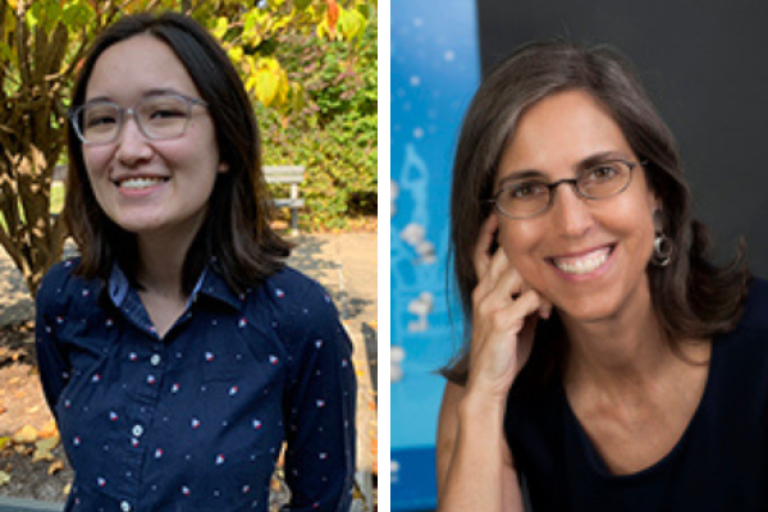News
Early math learning videos available from Mazzocco’s Math and Numeracy Lab
ICD doctoral student Sarah Pan and ICD Professor Michèle Mazzocco recently published a new blog post on how to incorporate early math learning into everyday family routines. The post “Finding Meaningful Math in Everyday Family Routines” was published by the Development and Research in Early Math Education (DREME) network at Stanford University.
Pan and Mazzocco encourage parents and caregivers to look for opportunities for hidden math with young children. Their four steps for informal math conversations, informed by the lab’s research on parent-child engagement in early math, are:
- Notice the math.
- Talk about the math.
- Ask questions and have conversations.
- Model and praise problem-solving.
As a member of the DREME network, Mazzocco and her team, including collaborator Alisha Wackerle-Hollman, Assistant Research Professor of Educational Psychology, have produced a series of videos to demonstrate how families can have math conversations during everyday routines.
Math Conversations While Grocery Shopping
Math Conversations While Setting the Table
Math Conversations at Bedtime
Lotería – Spanish Language
The Math and Numeracy Lab team developed these and other resources to support parent educators and other family support professionals who aim to promote parent engagement in early math. These resources were developed in response to requests for such support from Minnesota Early Childhood Family Education (ECFE) parent educators, and are aligned with research demonstrating that early mathematical learning opportunities may foster a healthy disposition towards math and the development of foundational math skills for school readiness.
To read research from The Math and Numeracy Lab that informed this work, please view the following citation:
Chan, J. Y.-C., Praus-Singh, T. L., & Mazzocco, M. M. M. (2020). Parents’ and young children’s attention to mathematical features varies across play materials. Early Childhood Research Quarterly, 50(Part 3), 65–77. https://doi.org/10.1016/j.ecresq.2019.03.002
Production of the Grocery Store, Setting the Table, and Bedtime videos was supported by funding from the Heising-Simons Foundation for the DREME Network and by DREME collaborators at Stanford University. Production of Lotería was supported by funding from the Drea Alm Foundation of the Saint Paul and Minnesota Foundation. Contributors to Lotería include volunteer voice actors and members of the Families, Culture, and Development Laboratory at New York University directed by Gigliana Melzi, Ph.D.
